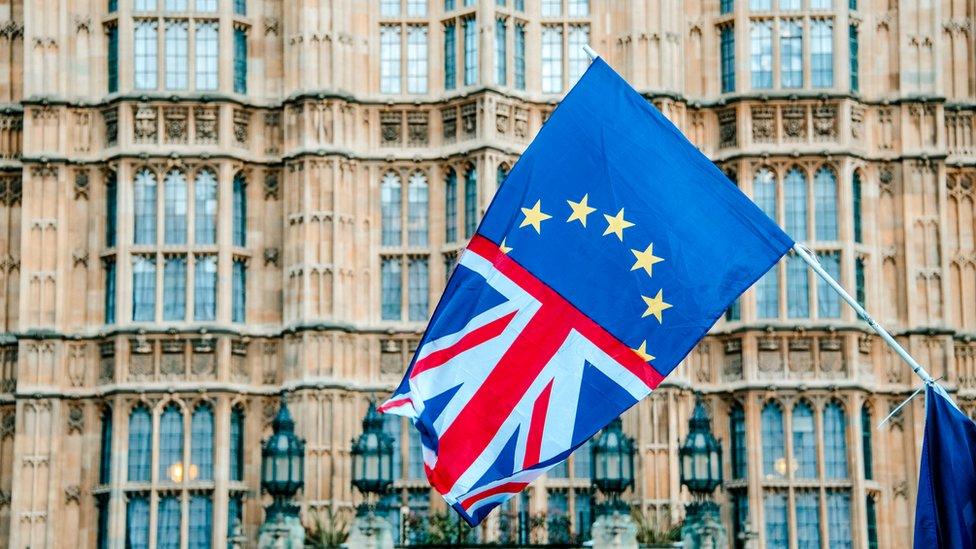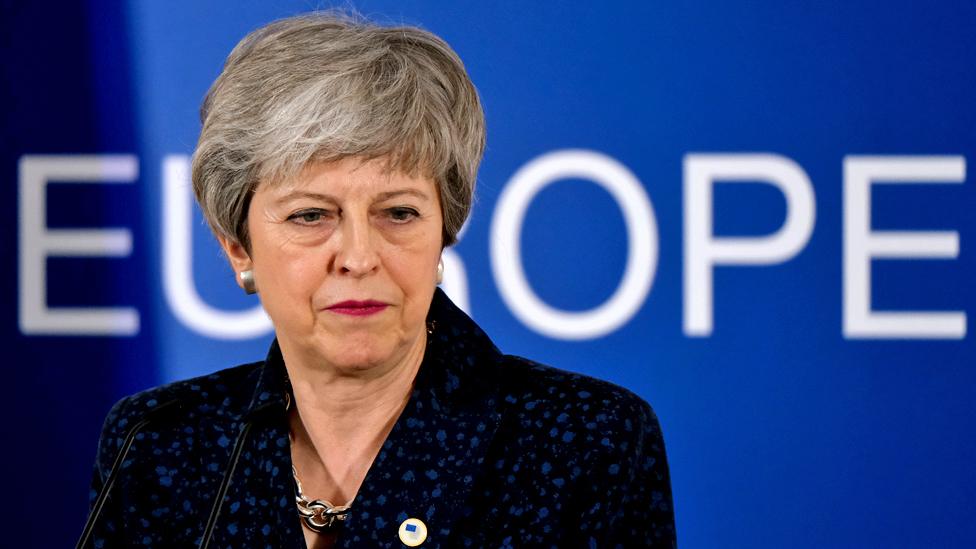Article 50: Can the UK cancel Brexit?
- Published

The Liberal Democrats have pledged to cancel Brexit without holding a further referendum if they win power at the next election. How would that work?
Cancelling Brexit would involve revoking something called Article 50.
What is Article 50?
Article 50 is the part of the agreement, known as the Lisbon Treaty, which sets out what happens when a country decides that it wants to leave the European Union (EU).
It was triggered by Theresa May on 29 March 2017, starting a two-year countdown to leaving - although this period has now been extended twice.
How could Article 50 be revoked?
The European Court of Justice (ECJ) ruling last year, external confirmed that the UK could revoke Article 50 itself, without having to ask the other 27 EU countries for permission.
This could be done by writing a letter to the European Council, made up of EU heads of state.
The ECJ said the UK would then remain a member of the EU on the same terms - as it has now - including keeping its budget rebate (the discount applied to the UK's contributions to the EU budget).
But it did set some conditions.
The ruling said revocation should be "unequivocal and unconditional", suggesting that the UK could not simply revoke Article 50 in order to buy more time and then resubmit it at a later date.
A senior lawyer at the ECJ said that "appropriate legal instruments" could be used if a member state tried to trigger and revoke Article 50 in order to secure a better withdrawal deal.
Who decides?
The Prime Minister or Parliament?
The ECJ didn't give a definitive answer to this.
The court ruled that: "Revocation must be decided following a democratic process in accordance with national constitutional requirements."
The UK government has a power known as the Royal Prerogative, which allows it to do certain things including deploying armed forces, granting honours and altering international treaties without consulting Parliament.
So it is possible in theory that a prime minister would be able to revoke Article 50 without giving MPs the chance to vote on it.
But there are limits to that power, and those limits have been tested during the course of the Brexit process.
When Prime Minister Boris Johnson used the Royal Prerogative to prorogue Parliament for an extended period, the Supreme Court ruled this use of the power unlawful.
Its use to activate the two year Article 50 negotiating period was also challenged by Gina Miller at the beginning of 2017.
The Supreme Court ruled in her case, external that the government could not trigger the EU exit process without bringing it before Parliament.
Because an act of Parliament was required to trigger Article 50, it has been suggested revoking it would also need parliamentary approval.
The weight of legal opinion is that a law would have to be passed to allow the government to revoke Article 50, although some lawyers believe a letter from the prime minister would do.
That's if a prime minister were to make the decision - but what if Parliament wanted to force their hand?
They could potentially do this by taking control of Parliamentary business, as has happened on two occasions in the Brexit process - both times to compel the prime minister to seek an extension and stop a no-deal Brexit.
In the same way, if there were a majority to do so, MPs might be able to instruct a prime minister to revoke Article 50.


- Published22 March 2019

- Published22 March 2019
- Published22 March 2019

